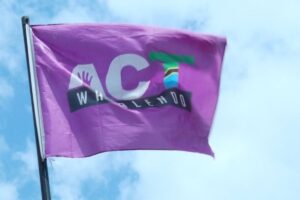TANZANIA is currently experiencing severe weather as a result of a changing climate.
Increased temperatures, prolonged droughts and erratic rainfall are resulting in significant impacts to public health and livelihoods, with climate projections indicating that the situation is expected to intensify.
The extreme drop of water levels of Lake Victoria, Lake Tanganyika and Lake Jipe in recent years and the dramatic recession of 7 kilometers of Lake Rukwa in about 50 years, are associated, at least in part, with climate change, and are threatening economic and social activities.
The severe droughts which hit most parts of the country leading to severe food shortages, food insecurity, water scarcity, hunger and acute shortage of power signify the vulnerability of the country to impacts of climate change.
The country depends on the media to speak out on all these environmental issues, for the betterment of us, human beings and other living creatures provided that we depend on each other for our survival.
Engineer Matage Dotto, on behalf of the Managing Director of Bukoba Urban Water and Sanitation Authority (BUWASA), appealed to the media across the country to make climate change their top agenda by educating the public on its effects and necessary steps to be taken.
“Specialization makes a journalist to be perfect. You should focus on specialization in different fields, including environmental reporting,” he said.
Several people are reported to have died while significant infrastructures were destroyed by floods that recently hit Kagera Region.
Also Read: Fueling equality: How clean cooking drives women’s empowerment in Tanzania
Over 300 households were recently displaced following landslides which hit Muleba District’s Ilemela village.
Reports indicate that the landslide started slowly on April 17th of this year, followed by a big landslide that swept through Bushabo hamlet, damaging at least 14 houses completely while over 300 families were displaced.
However, there were no casualties. A camp for fishermen located at Bushabo hamlet was completely destroyed by the landslide. This is the first incident involving a landslide.
The incident has caused panic among citizens. A significant number of crops had also been washed away. A landslide is a mass movement of material, such as rock, earth or debris, down a slope.
This can happen suddenly or more slowly over long periods of time. When the force of gravity acting on a slope exceeds the resisting force of a slope, the slope will fail, and a landslide occurs. Landslides are caused by rain, earthquakes, volcanos and other factors.
Vice President Dr Philip Mpango, on the other hand, has called on international stakeholders to cooperate and support Tanzania in climate change adaptation, including disaster control and response, and building the capacity of the early warning system.
Cooperation can be further increased in building the ability to cope with climate change and facilitating modern agriculture that is compatible with the climate to improve productivity for smallholder farmers.
President Samia Suluhu Hassan has already launched the African Women Clean Cooking Support Programme (AWCCSP) and the National Strategy for Clean Cooking Energy 2024-2034.
President Samia recently co-chaired the Paris Clean Cooking Energy Summit, alongside African Development Bank Group President Dr Akinwumi Adesina, Prime Minister Jonas Gahr Store of Norway and International Energy Agency Executive Director, Fatih Birol.
The Paris summit aimed to secure commitments toward 4 billion US dollars (about 10tr/- ) needed to close clean cooking funding gap for African women.
The landmark event aimed to drive significant change in clean cooking access for the nearly one billion Africans using polluting fuels, which cause the premature deaths of approximately half a million women and children every year.
Women and girls spend up to five hours a day collecting fuel and cooking. This leaveslittle time for education, social or economic activities.
Also Read: COLUMN: FROM TABORA WITH LOVE. I think soon we will have to own a boat
Worldwide, according to the African Development Bank (AFDB) statement, the annual economic cost of women and girls’ time searching for fuel wood is estimated at 800 billion US dollars. The health costs are as high as 1.4 trillion US dollars.
“The capital investment needed to ensure universal clean cooking access in Africa by 2030 is accessible,” AFDB said adding, “The 4.0 billion US dollars needed annually is a small fraction of the 2.8 trillion US dollars invested globally in energy each year”.
Clean cooking initiatives are eligible under the Climate Action Window (CAW) of the African Development Fund (ADF), the AFDB Group’s concessional window for 37 of Africa’s poorest and most vulnerable countries.
Increased adoption of clean cooking fuels such as electricity, biogas and sustainable biofuels will improve the health and well- being of Africa’s women and children and also protect Africa’s forests.
Several African countries have begun taking proactive measures to accelerate clean cooking adoption. Data indicate that about 6.7 per cent of Tanzanian population are using clean cooking energy, Kenya (23 percent), Uganda (0.7 percent), Ghana (30 percent) and India (71.7 per cent).
The AFDB’s commitment to addressing the clean cooking crisis aligns with its high five priorities- particularly “Light Up and Power Africa” and “Improve the Quality of Life for the People of Africa.”
Source: allafrica.com














